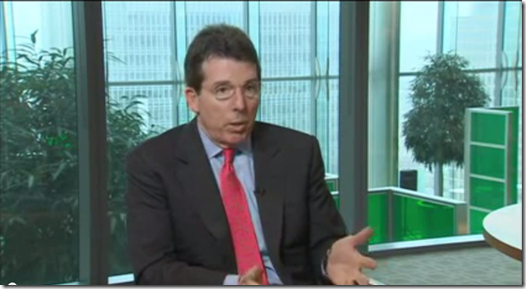The Toughest Media Question You Will Ever Face
I’ve conducted mock interviews with thousands of spokespersons since 2004. There’s one question that no trainee has ever answered particularly well, and there’s good reason for that – it’s a killer question.
Here’s the set-up: I’m working with a top executive from a not-for-profit association, a quasi-governmental organization, a membership group, or a utility company. The top executive makes $600,000 per year. Or $800,000 per year. Or $1.2 million per year.
Here’s my killer question:
“How can you justify making $800,000 per year?
Today, I’d like to ask you to make the call. How would you advise an executive to answer that question, especially if he or she works for a group that depends on taxpayer funding, private donations, or middle-class ratepayers?
Please leave your thoughts in the comment section below. I’ll compile your answers in a post later this week, where I will also add my thoughts on the subject.
Finally, please share this link with your social networks so we can gather a wide variety of responses. As always, thank you for reading.


Great article idea!
Ive got a question: For those who have difficulty answering this question, is it due to guilt?
Not really sure how the first three should answer the question, but the utility company (assuming you mean IT or something of the sorts): something about them working hard and being fortunate to be in such a position???
Thanks, Melissa!
Regarding your question, it’s not usually due to guilt. Rather, it’s because anything they say makes them sound disconnected, such as, “Well, I work hard.” (oops – so do many people, and they don’t get that high salary). Or, “That’s what the going rate is.” (oops – so you’re only willing to ‘save the whales’ as long as you get paid $750,000/year to do so?)
It’s a tricky line of questioning full of pitfalls. The second part of your response, about being fortunate to be in such a position, is an important part of the response.
Thanks!
Brad
Well (insert name of interviewer here), that’s a great question and here’s the plain and simple answer. In any organisation, it’s not what you spend that matters – it’s what you bring in – whether “it” is the person in the mail room providing a fantastic service or myself in the job that I do, bringing in new business, future vision and leadership that will steer the company to profit or above and beyond where we are now. I think that “it” warrants my (or anyone else’s) salary package at various levels of remuneration. I think any reasonable person can see that at this level, there are decisions requiring skill and experience that has been acquired over many years. Look I welcome input from anyone who would like to discuss this further and my salary package is something I make transparent at all company meetings and it’s decided by the shareholders and freely discussed at all levels of the company.
Thanks for your answer, Hastings!
I’ll include an excerpt in the follow-up article later this week.
Best wishes,
Brad
I think it’s really, really important that the CEO acknowledge that achieving his/her position is a combination of hard work AND good luck … because many many people work 18-hour days and make minimum wage. He or she can acknowledge the importance of a good education, having a plan, etc. … but don’t say that it was all hard work, because he/she would offend soooo many people!
Similar to Hasting’s comment…but I would also focus on the fact that “I have many years of experience that allow me to make strategic decisions for the company on a daily basis that affect each and every employee and the future of our business.”
To answer your question directly: Advise the client to cite stats showing their salary is in line with other CEOs in the same space and with the same size organization (apples to apples comparison)-assuming that is true. I’m a firm believer in absolute honesty and transparency.
That said, there is no strong or good answer when the UN Sec General makes $237k and you as a CEO of a significantly less important, less complicated and smaller non-profit make $800k. That situation is a function of incompetent corporate governanance.
Generally, most corporate PR crises are a function of incompetent management and/or corporate governance. The most effective strategy for the PR pro is to advise the client to admit the mistake, fix the mistake and be transparent.
Great comments, all!
Later this week, I’ll compile your comments, with links back to your sites, and will offer my thoughts on this question as well.
There’s still plenty of time to weigh in, so keep the great comments coming!
Brad
From the government perspective, frame the response by pointing out the number of employees, facilities, and daily customers and interactions, as well as the economic impact.
A government agency such as a city or school district could easily be a community’s top employer. You want to set the pay for the CEO (Commissioner, Mayor, CAO, Superintendent, etc.) in such a way that it reflects the level of skill and expertise needed to effectively manage an organization that has deep and long-lasting impacts on the community.
I would caution justifying it against a private corporation (though you could make a strong case for it). The pay can easily stand on its own by showing what the agency does and who it impacts.